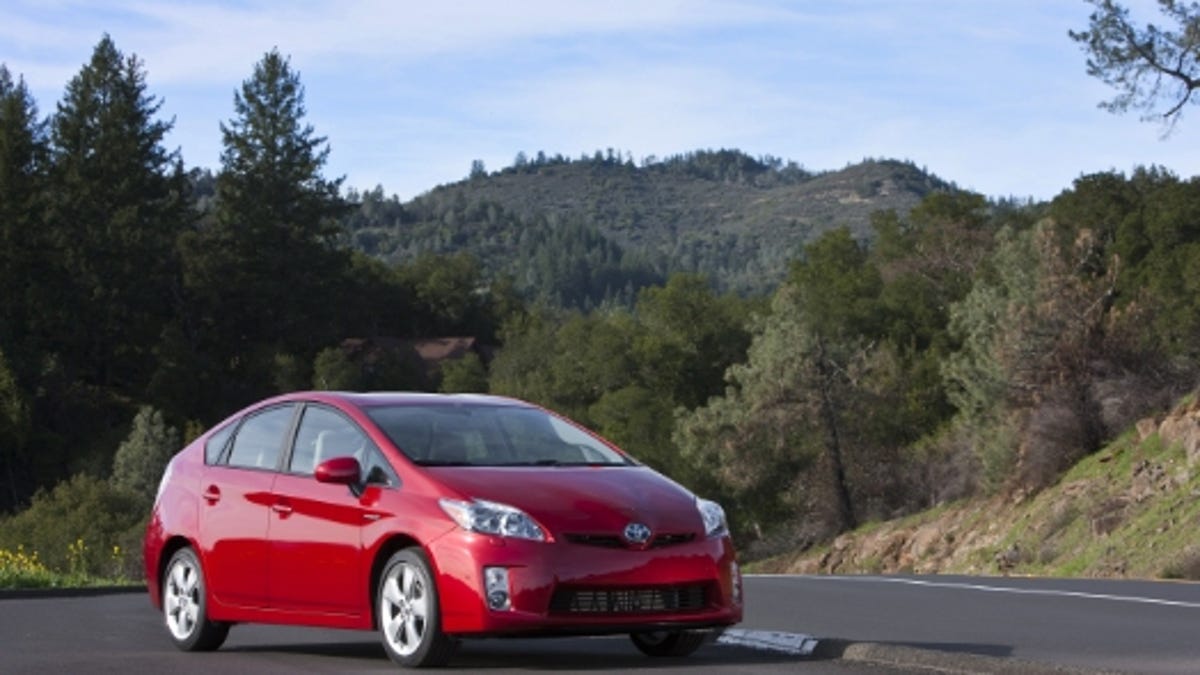Toyota: One millionth Prius sold in U.S.
The automaker, beset by troubles at home following Japan's devastating earthquake, celebrates a milestone for the hybrid vehicle, now in its third generation.

Toyota Motor announced today that it has sold its 1 millionth Prius in the U.S.
The announcement has been expected since the fall, when Toyota released September 2010 statistics revealing that it had sold over 2 million Priuses worldwide. Of those, 206,000 had been sold in Europe, 827,000 in Japan, and over 939,000 in the U.S., as well as thousands more in other countries.
Toyota is into production of the third generation of the Prius, the first mass-produced hybrid-gas vehicle.
The first-generation Prius was released in Japan in 1997, then became available in North America and Europe in 2000. The second-generation model was released in 2003, and the third in 2009. The Prius now is available for purchase in over 70 countries.
"Since it was introduced in the U.S. in 2000, Prius, when compared to the average car, has saved American consumers more than an estimated 881 million gallons of gas, $2.19 billion in fuel costs, and 12.4 million tons of CO2 emissions," Toyota said in a statement.
Related links
• Toyota electronics not at fault for unintended acceleration
• Top 5 fuel sippers--hybrids (photos)
• Honda Civic GX tops green list again
The Prius milestone surely comes as welcome news for the company.
Toyota has been struggling after the devastating earthquake and tsunami that hit Japan on March 11 and that forced the automaker to shut down several of its Japanese plants.
The situation has affected worldwide parts production for several automakers. Assembly and production plants in other countries are faced with waiting, resourcing, or retooling for specific components normally produced in Japan. Meanwhile, the economic outlook of Japan, one of Toyota's largest markets, remains tenuous in the wake of the disaster.
While some of Toyota's Japanese plants have resumed production for certain models, over 16 plants are still closed. A Toyota spokeswoman told Agence France-Press today that the company is still unsure when those plants will be back online.
But Toyota's problems stretch back even further. The company has been harangued by governments and the public in recent months for its handling of quality-control issues over seat belts and exhaust pipes, along reported defects in its acceleration and brake systems. (In February, the U.S. Department of Transportation said that Toyota's electronic systems were not at fault in a spate of widely publicized cases of unintended acceleration.)
Since 2009, the carmaker has been forced to issue multiple recalls affecting millions of its Toyota and Lexus brand vehicles.

